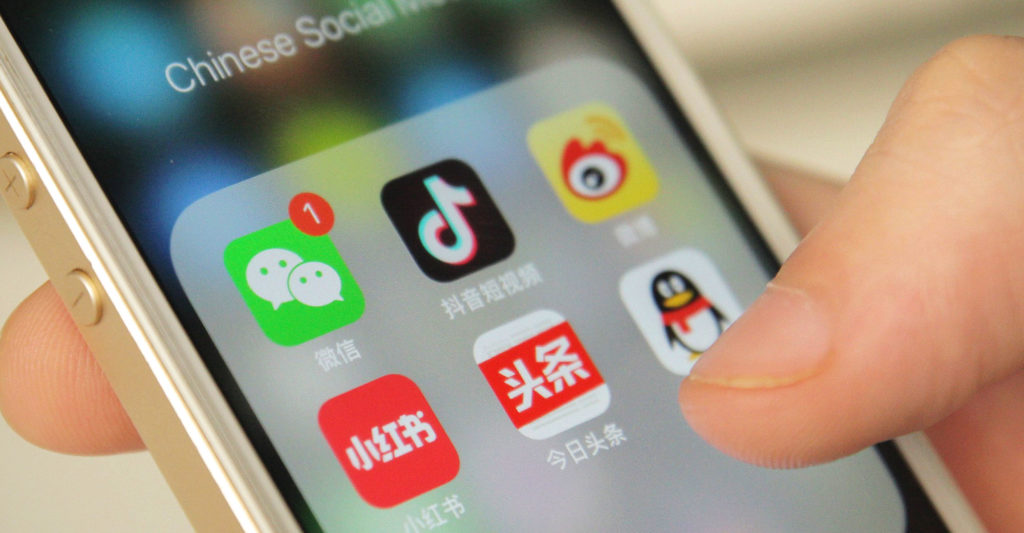Why is email marketing ineffective in China?
Email marketing is one of the most ineffective marketing tactics for foreign companies operating in China and in many ways, is seen as a ‘waste’ of resources. According to data from Experian Market Services in 2015, who analysed email marketing performance in selected Asia Pacific countries, China’s total opening rate only reached 10.5% compared to 33.1% in New Zealand.
In comparison to the West, email has never been huge in China. Whilst this preferred means of contact still reigns supreme in many Western countries both in work and life, it has not been matched in China. Deloitte’s 2018 China Mobile Consumer Survey showed that Chinese people check their emails 22% less often than users globally.
Chinese people check their emails 22% less often than users globally.

Email rates in China are relatively stagnant due to various issues with service providers, firewalls, and security. Allison Malmsten, Marketing Director at Daxue Consulting further highlights the uptake of emails between China and the West, and points out that, “Developed countries witnessed a slow rise of technology, from the first computers which filled rooms, to chunky desktop monitors, to laptops and then to smartphones.”
“In contrast, the majority in China went from having no such technology in their home to having smart phones in their pocket. E-mail was created alongside the development of computers, and has been adapted to smartphones,” Malmsten adds.
What do Chinese people use instead of email?
In many ways, smartphones have replaced computers as the main computing device in China. The country was a relatively late adopter of computers and when internet cafes started to open in the 90s and early 00s, young people started to use social messaging programs such as QQ to communicate with one another.
Unlike standard emailing, QQ provided entertainment and more interaction with features such as instant messaging. Moreover, when WeChat, the current most popular communication app was released in 2011, it soon became an integral part of daily life. The multi-functioning instant messaging mobile app replaced the use of emails and just like in the West where your email address is part of your identity, WeChat has taken precedence.
The multi-functioning instant messaging mobile apps replaced the use of emails.
WeChat ‘fits’ into the Chinese working culture and resonates with consumer behaviours. It has evolved to become the leading mobile platform in China, which integrates social, commerce, service, and communication. Although this does not mean Chinese people do not use email, people just check it far less frequently than their Western counterparts.
Chinese consumers have not cultivated the habit to use emails regularly in their daily life and this is the main reason why email marketing is less effective in China. As Allison further highlights, “Email marketing often leads to a brand’s disappointment as the majority of Chinese do not routinely check their personal emails (if they even have one) and would expect the brands they care about to meet them in their natural digital habitat”.
Doing “email marketing” through WeChat
With the prevailing communication habits in mind, it is essential that any brand operating in China undertakes their ’email marketing’ through WeChat. It has an endless array of functions, and companies can even send newsletters through the app.
Such newsletters can automatically increase customer engagement and create a closer ‘relationship’ between the brand and its customers as companies can publicise discounts and promotions all through the same platform. Companies can also make product announcements through ‘WeChat Groups’ and this in turn can further strengthen a company’s marketing position in China.
Allie Rooke who has years of experience in the Asian Beauty Industry says, “WeChat brand accounts can give you information on different aspects of the brand and are much more interactive vs email. [Moreover] Consumers feel it is more convenient to get pushes from brands [on WeChat] because they don’t need to shift across platforms”.
Consumers feel it is more convenient to get pushes from brands [on WeChat] because they don’t need to shift across platforms.
Furthermore, an alternative way in which marketers can make their WeChat newsletters more effective is by tapping into national cultural beliefs. Many Chinese people believe in horoscopes, so personality tests such as the Myers Briggs Type Indicator (MBTI) have become increasingly popular.
Marketers can incorporate this into their campaigns to further connect with young consumers. For instance, China’s Brand Coordinator for the French perfumery ‘Juliette has a gun’, Chenxin Yuan, says, “Brands like Jo Malone, Juliette has a gun, etc. on Weibo [a well-established micro-blog] always suggest different perfumes to consumers based on different horoscopes and different personalities of people.” By tapping into societal trends such as these, brands can resonate better with Chinese consumers and nurture long-lasting brand equity.
Email marketing through other means
Apart from WeChat, there are of course other means whereby brands can create trust with their customers, and allow them to equally engage Chinese consumers to gain the same level of utilisation as with ’email marketing’.

Chinese consumers like to see good shareable content from KOLs/KOCs than original content from brands themselves.
Chenxin Yuan, sheds light on the alternative ways they can connect with consumers, “Chinese consumers like to see good shareable content from KOLs/KOCs than original content from brands themselves. Chinese consumers trust the recommendations of their favourite bloggers because they aspire to have the same lifestyle and taste [….], if a beauty brand wants to expand its consumer base, it can’t just rely on beautiful visuals or one or two punchlines, it’s crucial to do a good seeding job on [alternative platforms] Xiaohongshu, Bilibili and TikTok”.
China’s booming digital ecosystem of social media apps provides an array of options for companies to build an effective and coherent marketing strategy. In China, social media is not an option but is vital for companies to be successful in entering the market by leveraging platforms.
Concluding thoughts
Whilst email marketing has its benefits in the West, any company intending to operate successfully in China must keep in mind the communication habits of the Chinese.
If a company uses the same marketing strategy as they would back home this will ultimately lead to failure. A company must understand the mindset and preferences of Chinese consumers to succeed.









